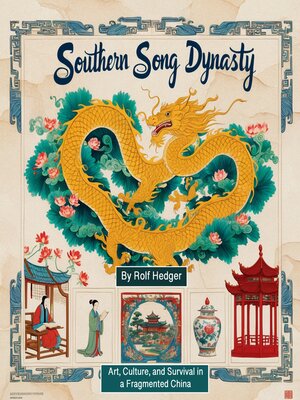Southern Song Dynasty
audiobook (Unabridged) ∣ Art, Culture, and Survival in a Fragmented China
By Rolf Hedger

Sign up to save your library
With an OverDrive account, you can save your favorite libraries for at-a-glance information about availability. Find out more about OverDrive accounts.
Find this title in Libby, the library reading app by OverDrive.



Search for a digital library with this title
Title found at these libraries:
| Library Name | Distance |
|---|---|
| Loading... |
The Southern Song Dynasty emerged in 1127 after the fall of the Northern Song to the Jurchen-led Jin Dynasty. This period marked a time of resilience, adaptation, and cultural flourishing, despite ongoing threats from external forces. The dynasty's establishment in the southern region of China reshaped political, economic, and artistic developments that would leave a lasting impact on Chinese history.
Following the invasion of the Jin forces, the Song court was forced to abandon its northern capital, Kaifeng. The remnants of the ruling family, led by Emperor Gaozong, retreated southward, eventually establishing a new capital in Lin'an (modern-day Hangzhou). This move signified not only a geographical shift but also a fundamental transformation in governance and strategy. Without control over the traditional heartland of Chinese civilization, the Southern Song had to develop new approaches to survival and stability. The dynasty focused on strengthening its bureaucracy, relying on a sophisticated civil service system that emphasized merit and Confucian ideals. Unlike the Northern Song, which had struggled with military weaknesses, the Southern Song sought to bolster its defenses by investing in naval power and fortifications along the Yangtze River.
The loss of northern territories meant that the Southern Song had to rely heavily on its southern provinces, which were rich in agricultural resources and well-positioned for trade. The economy shifted toward maritime commerce, with ports such as Quanzhou and Guangzhou becoming vital centers for international trade. Merchants expanded connections with Southeast Asia, India, and the Middle East, ensuring a steady flow of goods, wealth, and cultural exchanges. This economic shift allowed the Southern Song to sustain itself despite territorial losses and military pressures from the Jin and, later, the Mongols.







